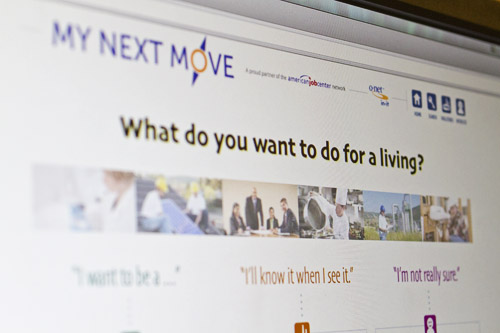Searching for a job as a college student can sometimes feel more gruesome than taking a bath with sandpaper instead of soap. Interviewers seem to always have their own idiosyncrasies, from how a resume should be formatted to what shoes you should wear to an interview.
Before the resume
Searching for a job as a college student can sometimes feel more gruesome than taking a bath with sandpaper instead of soap. Interviewers seem to always have their own idiosyncrasies, from how a resume should be formatted to what shoes you should wear to an interview.
Before even getting to that frustrating point in the system, there are a few things a job-seeker can look into to be better prepared for finding that perfect company to work for.
First, it’s incredibly important to figure out what you’re actually interested in before you get to an interview. This doesn’t mean kayaking; it means getting a starting point for what industries and companies you would be most likely to succeed in and narrowing your focus to what types of companies you’ll want to start looking at.
There are many online interest assessments and search engines that can help you narrow your options. The U.S. Department of Labor has a cool website called
mynextmove.org that will recommend career options that fit the interests you plug in.
After you figure out which industries you might be interested in, a great next step would be looking into what kind of work activities you’ll be expected to do and how much you’ll make doing them. The ONet Resource Center at onetcenter.org is a great resource developed, once again, by the DOL that allows job seekers to search for more specific information about occupations. You can find specific tasks and work values and see what the median wages are in your state.
After establishing these basics about who you are and where you want to go, start networking. Create a snazzy LinkedIn profile and start connecting with people. While it’s by no means a guarantee, recruiters do sometimes use LinkedIn and might stumble across your page.
Once you’ve gotten an idea of some industries you’d enjoy working in and know what kind of salary you’d be making, it’s time to start researching specific companies. It’s good to read the basics on a company’s “About Us” page, but that isn’t going to be extensive enough to figure out whether you should be applying.
Is the company stable, and will it exist in a few years? Form 10-K annual reports, metrics like Strength, Weaknesses, Opportunities and Threats analyses and competitor figures can help to identify whether a company is actually going to stick around long enough for you to get experience.
Another thing to explore is a company’s culture. Things like mission and vision statements might help you see the basics of what an organization is about, but try to dig a little deeper. It’s difficult to find this one without working for a company, but reputations, online customer reviews and even how a firm’s website looks can give clues into what it will be like to work there.
To go further, visit websites like glassdoor.com to see real employee comments on what it’s like working for an organization in your city. While it’s good to remember that not all the information on these sites is necessarily accurate, they can help to indicate what you might be getting yourself into.
Above all, learn whatever you can about the companies you apply to. Even students who just want to find any job they can get their hands on will benefit from using information to personalize a resume, cover letter and interview. Knowledge is always going to be power, and showing an interviewer how informed you are might just be the edge that lands you a job.







